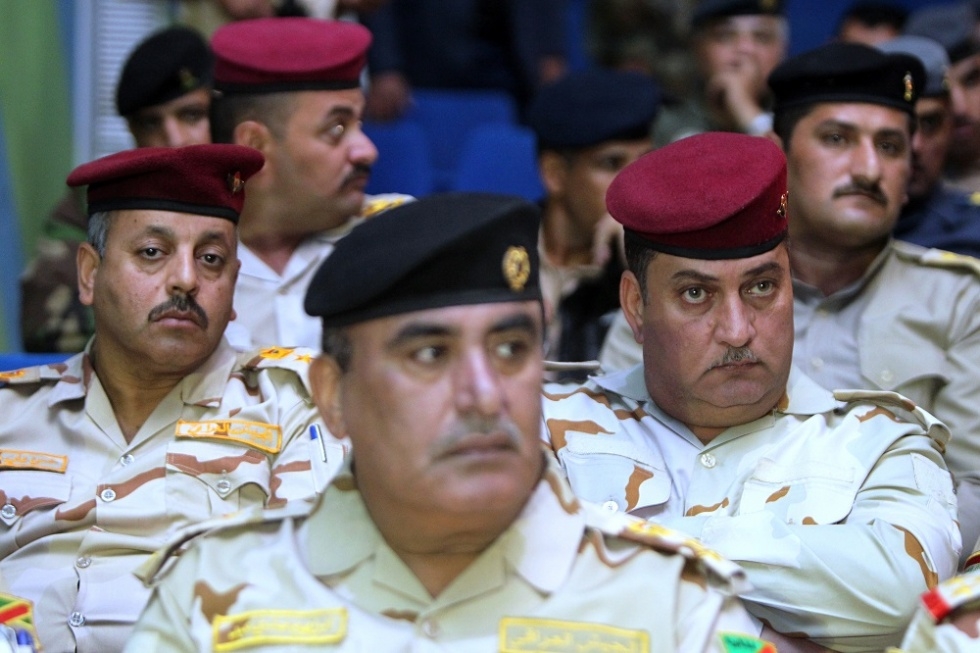Iraqi Prime Minister sacks 36 army officers

Iraqi Prime Minister Haidar al-Abadi on Wednesday sacked 36 army officers in an anti-corruption drive at a time when the military is locked in fierce conflict with Islamic State militants.
His office said that Abadi, who came to power following the removal of Nouri al-Maliki in early September and now serves as armed forces commander in chief, decided to dismiss 26 military commanders and sent 10 into forced retirement. He has also already sacked a number of senior army officers, in recent months.
It did not specify if the officers were in combat units or held administrative posts.
Abadi also named 18 commanders of new defence ministry posts, his office said, as part of efforts to "reinforce the military along professional lines and fight all forms of corruption".
Defence Minister Khaled al-Obaidi vowed last month to investigate military failings that allowed the Islamic State group to overrun large areas of Iraq and to hold those responsible to account.
Much of the controversy has surrounded Lieutenant General Mahdi Gharawi, who headed Iraqi operations in Mosul, before IS seized the city in June.
Gharawi is now in prison awaiting trial but has a divisive reputation, having been dubbed the 'Monster of Mosul' by some western media, due to the widespread allegations of torture that allegedly happened under his leadership. Gharawi is facing charges of dereliction of duty and is currently awaiting the findings of an investigative panel which will be followed by a military trial. If found guilty, he could face the death penalty. According to Reuters, several other officers, who served under Gharawi are also awaiting trial on similar charges.
Gharawi denies the allegations and insists that Baghdad refused his repeated requests for support.
IS-led militants launched a major offensive in June, causing the Iraqi army to crumble, in some cases even abandoning their uniforms and weapons in their haste to flee.
The militants then swept through much of the country's Sunni Arab heartland, where many residents were deeply mistrustful of Iraq's Shiite-led government.
Despite the west sending in scores of military advisors and aerial support, violence has since continued to spiral, with IS-linked suicide bombs a frequent occurrence and IS beating back Iraq troops to seize almost total control of the south western province of Anbar.
On Wedesday, ten people were killed and 22 injured in fighting in Iraq’s Baghdad, Kirkuk and Diyala provinces in the latest spate of attacks, an Anadolu Agency correspondent reported.
There were two bomb attacks in Baghdad. In the first attack, in Baghdad’s Nusur district, three people died and nine others were injured, security forces said.
In the second attack, in Baghdad’sRashid district, four IS militants and two soldiers were killed. Six other people were also injured.
In Kirkuk’s Dubis district, four Peshmerga fighters were injured in clashes with IS militants, district governor Abdullah Nurettin told AA.
A suicide attack by an IS militant on a military unit in the Diyala governorate in eastern Iraq also left an Iraqi colonel dead, and three soldiers injured.
Stay informed with MEE's newsletters
Sign up to get the latest alerts, insights and analysis, starting with Turkey Unpacked
Middle East Eye delivers independent and unrivalled coverage and analysis of the Middle East, North Africa and beyond. To learn more about republishing this content and the associated fees, please fill out this form. More about MEE can be found here.




